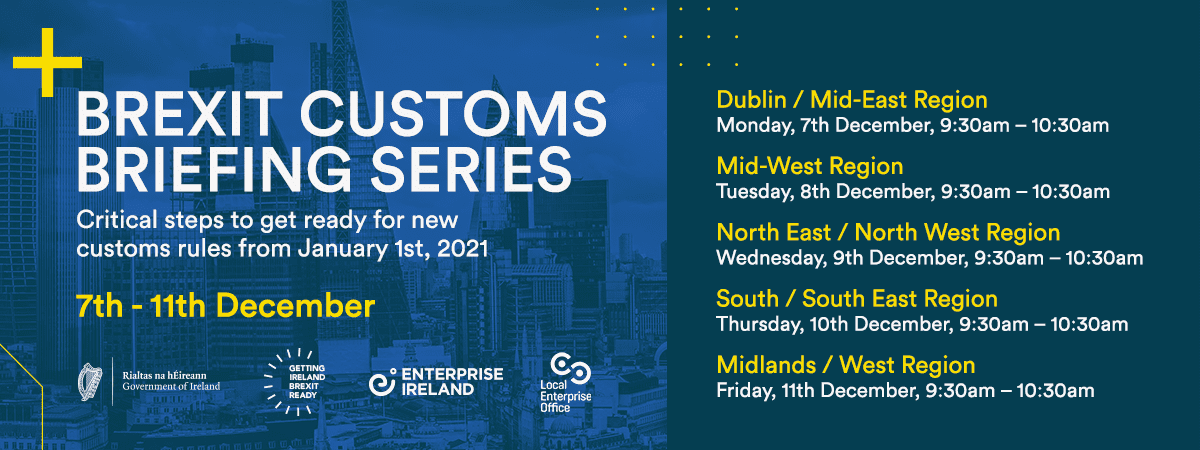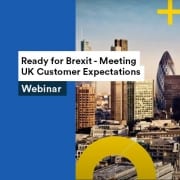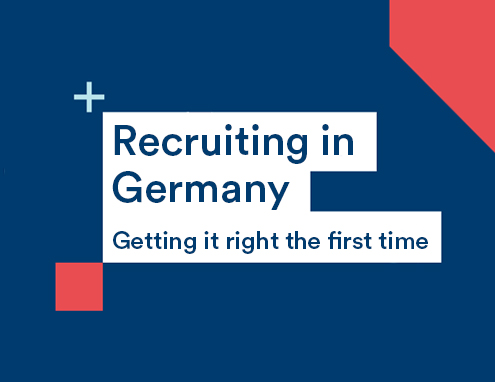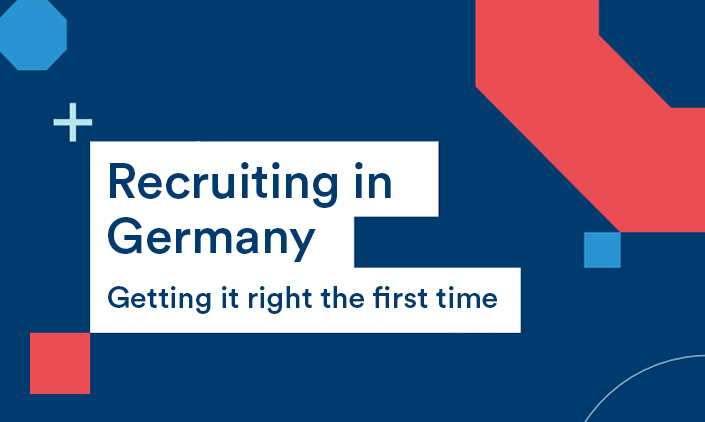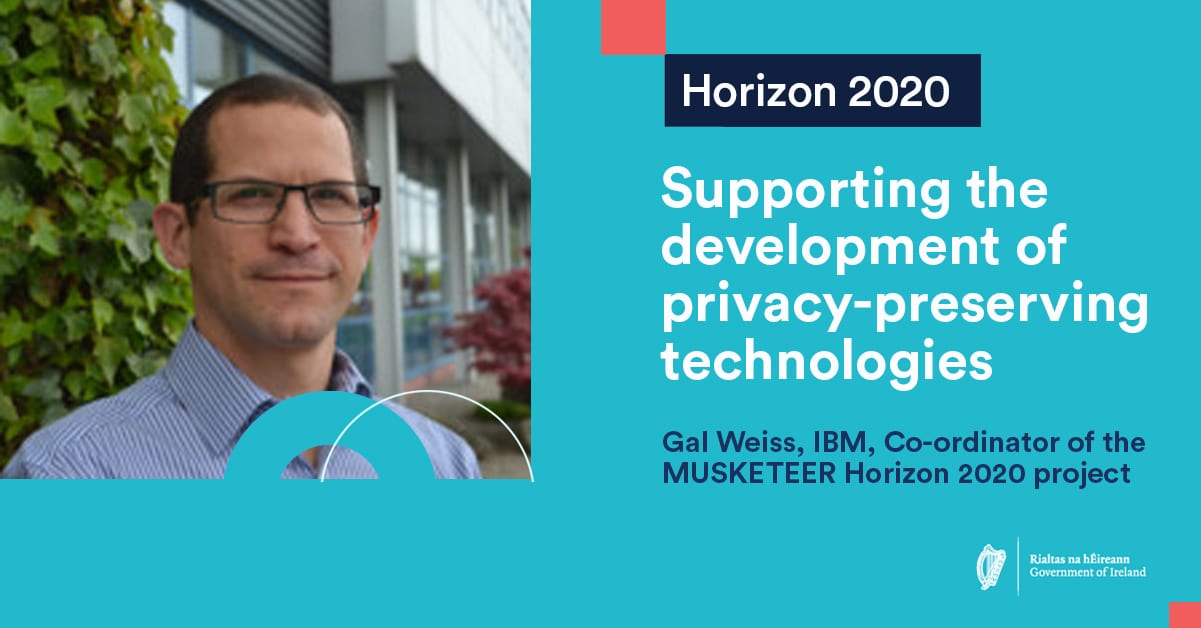
“In collaboration 1+1 is more than 2. When you work with other parties you will achieve much more than you planned to.”
Gal Weiss, IBM, Co-ordinator of the MUSKETEER Horizon 2020 project
Overview:
- IBM Research Europe (Ireland) is leading an international consortium that is conducting research and development on how to use federated machine learning where the confidentiality of data is of primary importance.
- The project is funded by the European Union’s Horizon 2020 research and innovation programme.
- Progress on work package integration is significantly ahead of plan, using the cloud-based MUSKETEER platform, and the majority of the outcomes are open-source and already publicly available.
The massive increase in data collected and stored worldwide by business and organisations calls for new ways to preserve privacy while still allowing data sharing among multiple data owners. That’s the challenge the MUSKETEER project is addressing with its aim of providing secure, scalable and privacy-preserving analytics over decentralised datasets using federated machine learning techniques.
Led by IBM Research Europe (Ireland) in collaboration with 10 other partners from across Europe, the project has secured €4.3m in funding from the Horizon 2020 programme, the European Union’s research and innovation instrument. With an €80 billion funding pot over a seven-year period (2014–2020), Horizon 2020 aims to deliver research and innovation breakthroughs, discoveries and world firsts.
Horizon 2020’s crucial role
Gal Weiss, IBM’s EU Programs & Partnerships Manager in Ireland, is the project co-ordinator. Instrumental in establishing IBM’s research laboratory in Ireland, he has been involved in numerous Horizon projects over many years and understands how crucial Horizon 2020 support is to large, complex projects.
“Only Horizon 2020 could bring this type of project to life because you need so many stakeholders. Some big companies would find it challenging to collaborate with anyone else because of the need to protect their data, and even between universities and research organisations, just to get agreements in place never mind the funding, this programme removes barriers and makes it happen,” he says.
Steps to success
The MUSKETEER idea was forged in EU conferences and workshops where IBM and some other partners merged their initial ideas into one proposal.
“Collaboration proposals are now very much about quality. For that, you need to build your network, be well connected and choose the right partners. Taking part in EU events is essential when you want to join R&D collaboration in Europe,” says Weiss.
“Connecting people can also be done via social networks, however, when it comes to finding unique partners in Ireland, Enterprise Ireland’s National Contact Points are brilliant.”
The NCPs provide information and guidance on all aspects of Horizon 2020 from helping to identify partners to reviewing proposals.
“The application process is challenging and you really need to look at the quality of the writing and get into the details. Even deciding what the right theme is and what call to go after can be difficult,” says Weiss. “Some internal measurements, planning, monitoring and control of the proposal are all essential to be successful.
“Enterprise Ireland helps a lot but it’s really important to start early. I believe there’s a need for organisations to be more connected within Ireland and externally so that they’re ready to collaborate when the opportunities arise.”
With his extensive experience of directing EU-funded projects and a great research team, Weiss has been able to steer MUSKETEER to the point where, at the midpoint of the project, progress on work package integration is significantly ahead of plan and the majority of the outcomes are already publicly available as open-source software.
“Co-ordinating an international project with 11 partners is challenging. It’s essential to choose the right partners in terms of their capabilities and reputation, set your expectations in advance, create a management plan, and be very clear about deadlines and how you want to work,” says Weiss.
Due to Covid-19 restrictions, the partners transitioned from traditional offices to leverage virtual meetings via video conferences and digital technologies.
“When I asked the team if Covid-19 was having any effect on their collaboration on the project, everyone said no, all on track. So it’s about being connected with them all the time and being transparent, so they know what I need next and what’s going to happen.”
A win-win situation
Weiss believes that the benefits of programmes like Horizon 2020 are significant and wide ranging.
“Firstly, in collaboration 1+1 is more than 2. When you work with other parties you will achieve much more than you planned to. And this has happened to us many times,” he says.
“There are great benefits especially for smaller businesses and also academic and research institutions.
“It’s an opportunity to meet bright people from other organisations across Europe but it’s also a great way to promote your business or institution across Ireland, across Europe and across the world.” says Weiss.
“For example, we gave an online webinar about MUSKETEER recently and there were over 100 people listening virtually, and many of the attendees were from outside Europe. That’s publicity for all the partners. So SMEs will potentially get more business by taking part in Horizon and doing a good job. Everyone in Ireland should be taking part in Horizon 2020 programmes because they will achieve more and they will be known for what they are doing.
“Quite simply, if everyone plays their part it’s a win-win situation.”
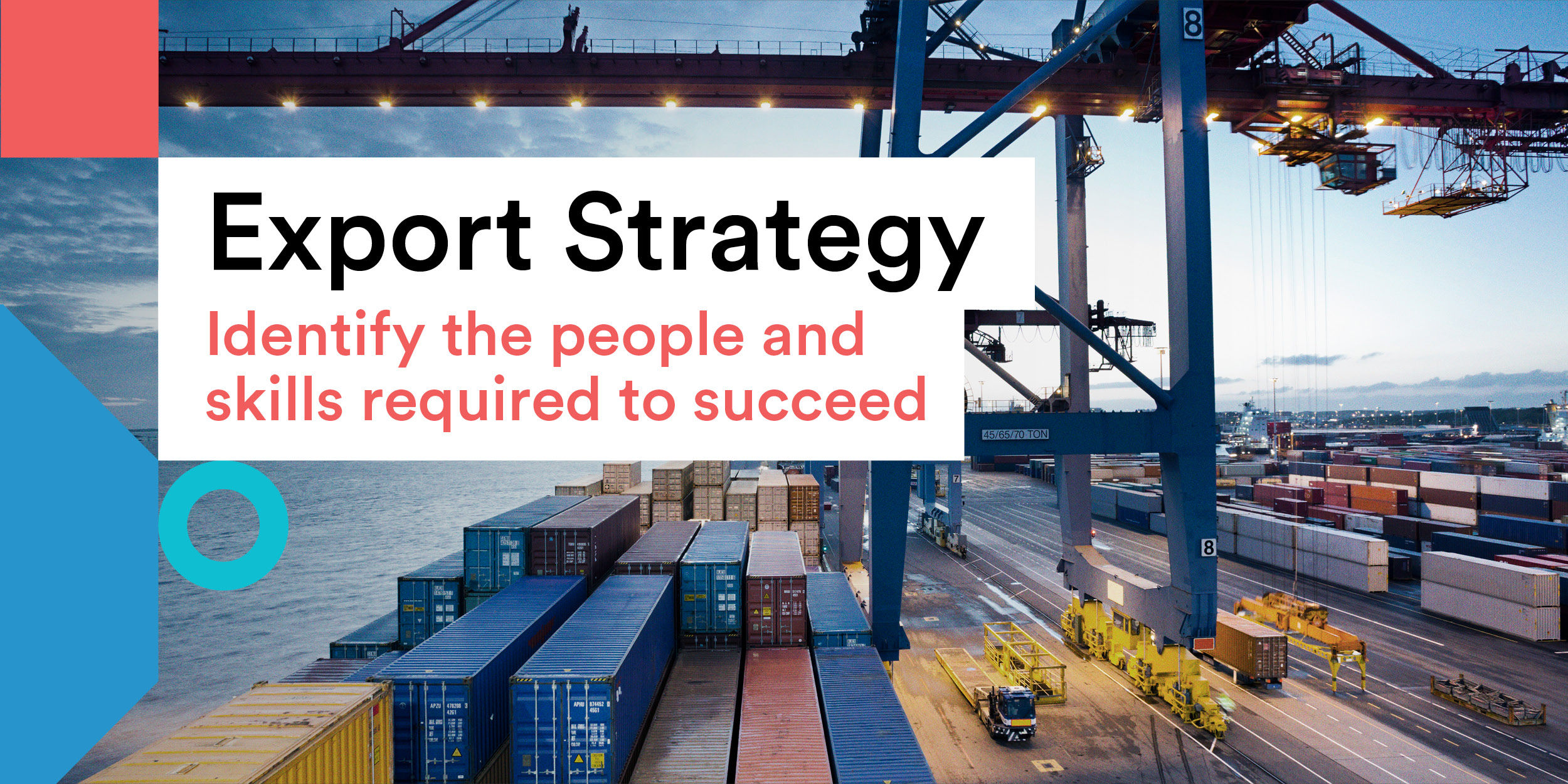

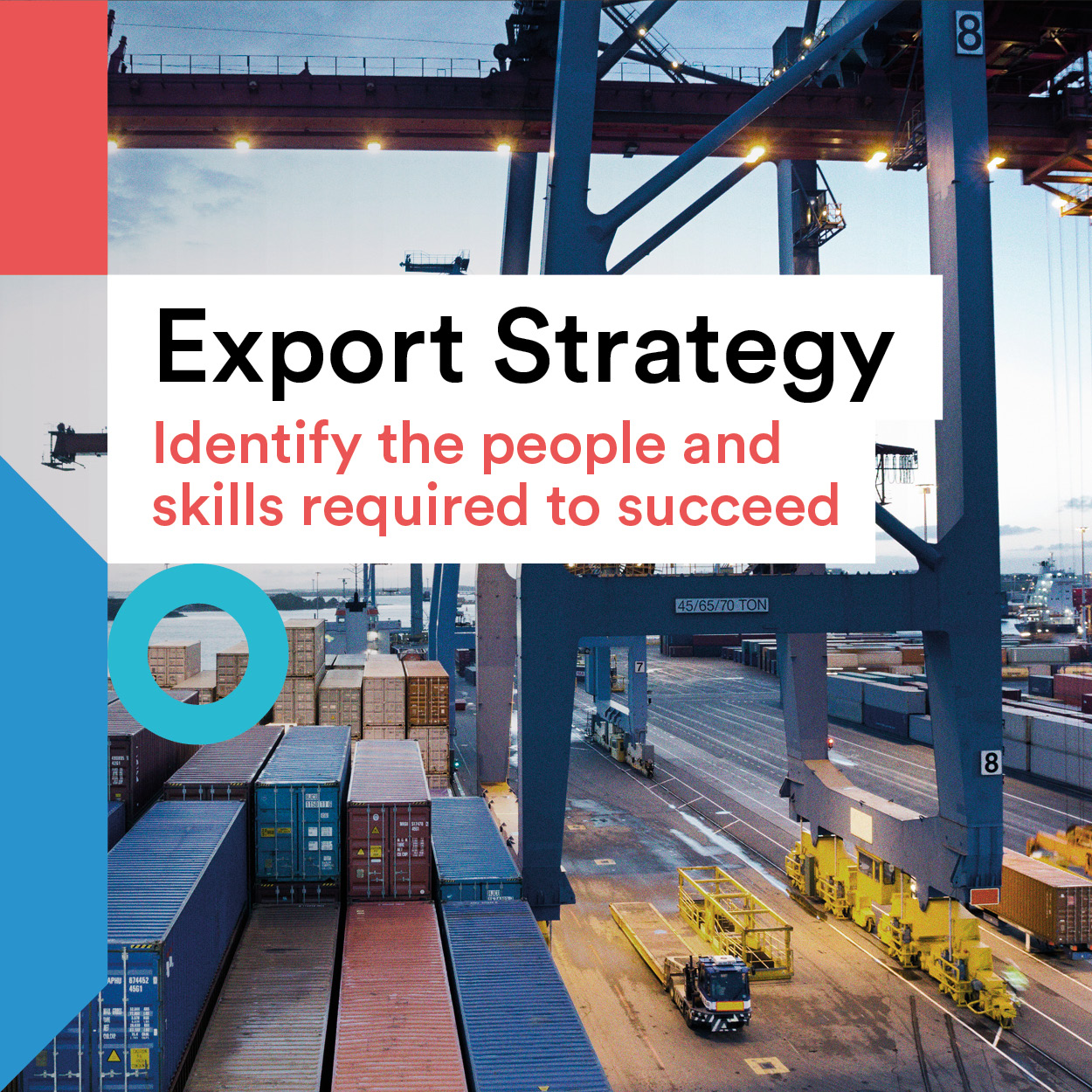




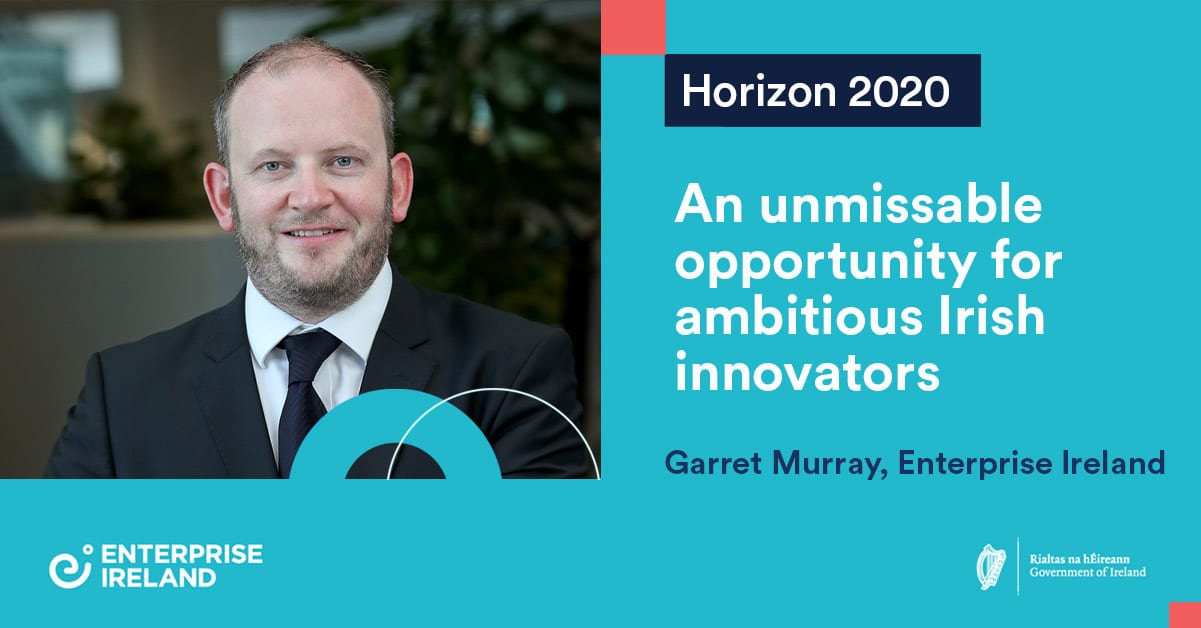
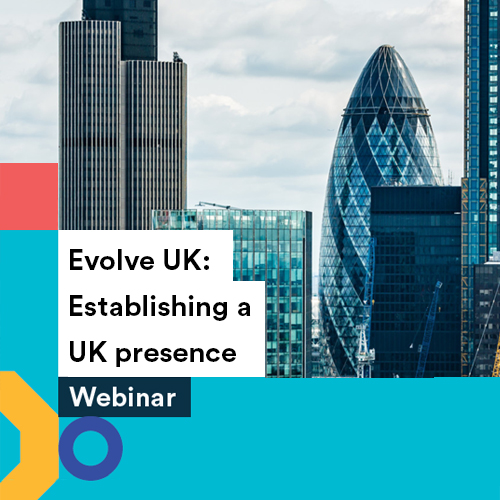

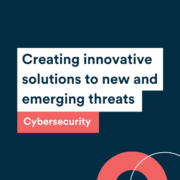

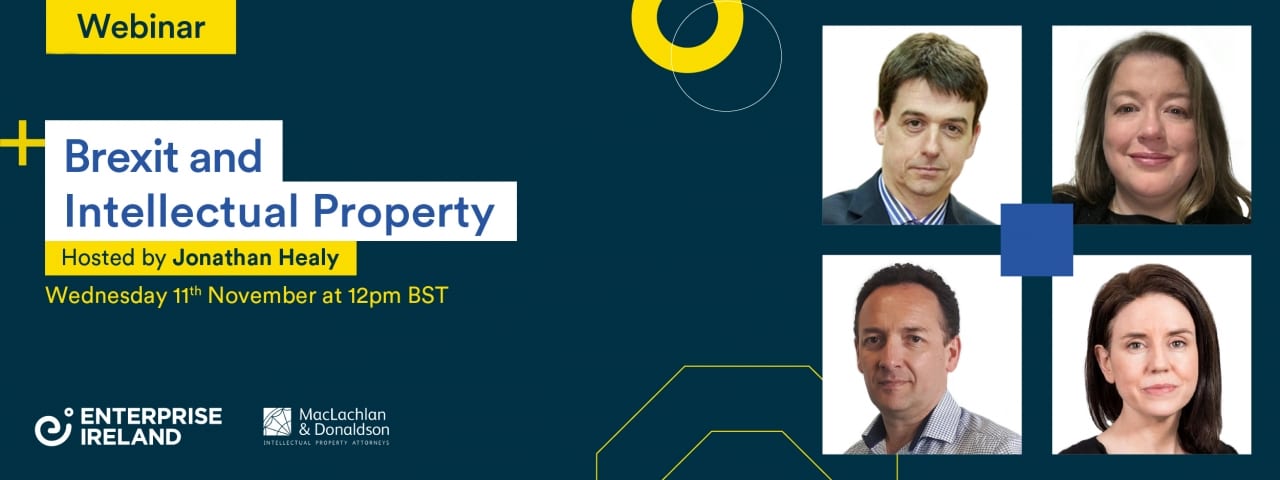 The UK’s decision to leave the EU will impact many aspects of business including Intellectual Property Rights (IPR).
The UK’s decision to leave the EU will impact many aspects of business including Intellectual Property Rights (IPR).
